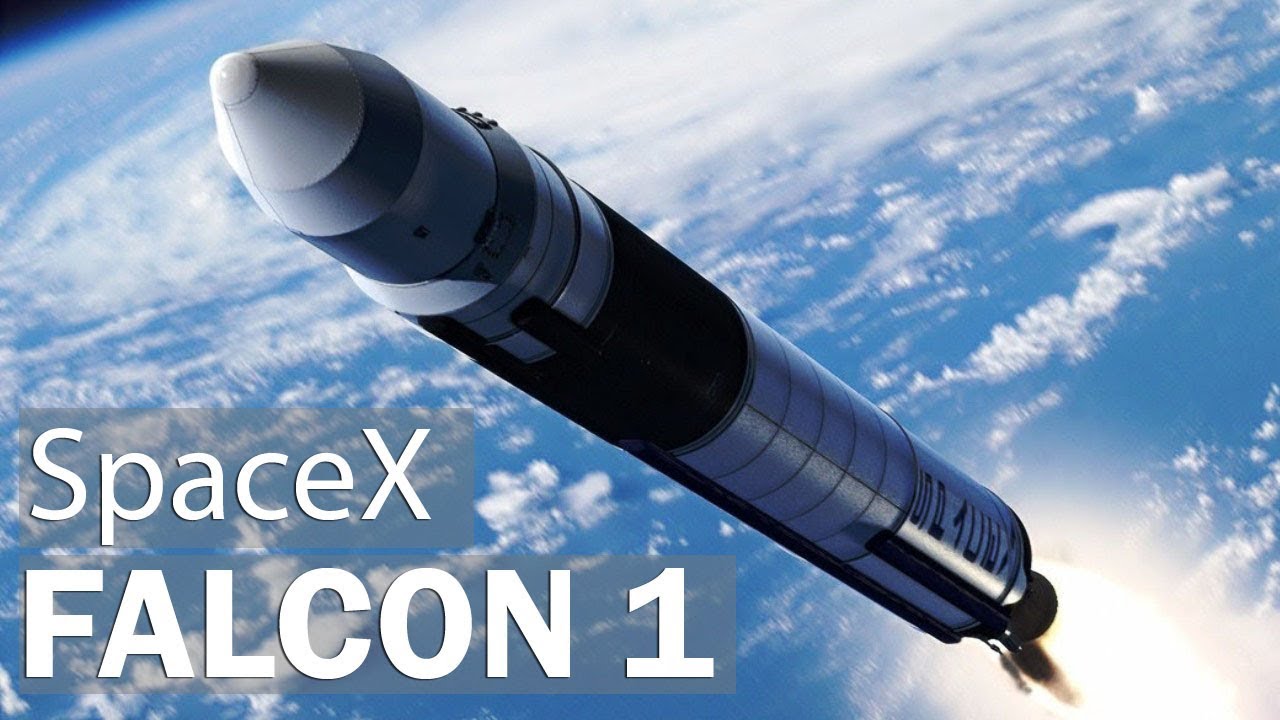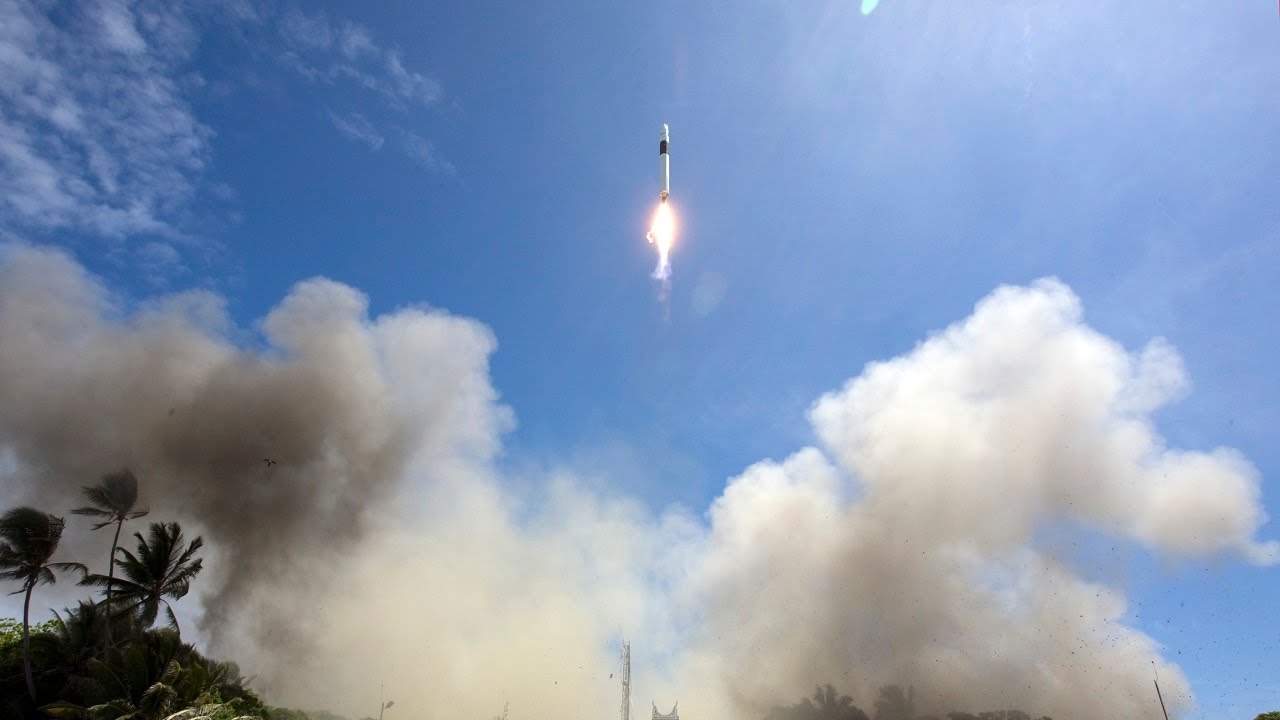Elon Musk risked everything to make his space dream come true.

On September 28, 2008, after three failures and facing bankruptcy, Elon Musk and SpaceX created a miracle when they successfully launched Falcon 1, opening a new era for the private space industry.
This is not only a boost for SpaceX but also a turning point marking the strong participation of the private sector in an area that has long been considered the “exclusive playground” of national space agencies.
The success of Falcon 1 ushered in a new era where bold and innovative startups could compete directly with corporations and government agencies in the space race.

Before the Falcon 1 successfully took off, SpaceX’s journey was fraught with challenges. Elon Musk, a South African-born entrepreneur with a vision to change the future of humanity, founded SpaceX in 2002 with the goal of reducing the cost of rocket launches and eventually sending humans to Mars.
To realize this vision, SpaceX embarked on the development of the Falcon 1, a lightweight rocket designed to be partially reusable and transport small payloads into orbit. This was a bold idea, as at that time, even leading space powers such as the US, Russia or Europe had not really mastered the technology of rocket reuse.
However, the first three Falcon 1 launches were failures. The first test in March 2006 ended after just 25 seconds when the engine failed and a fire broke out. The second test in March 2007 lasted longer but still failed to reach the desired orbit.
On the third attempt in August 2008, the rocket almost succeeded but had a problem separating the stages, causing the entire mission to fail. After three consecutive failures, SpaceX was on the brink of bankruptcy, many employees lost confidence, and Elon Musk seemed to have exhausted his financial resources.
However, instead of giving up, Elon Musk and the SpaceX team put all their efforts into the fourth launch. And on September 28, 2008, Falcon 1 made history by becoming the first private rocket to successfully put a satellite into orbit.
The event not only saved SpaceX from the brink of collapse, but also proved that a startup can compete on equal footing in a field traditionally dominated by giant defense industry corporations and government agencies.

The success of the Falcon 1 quickly changed the way the world viewed the space industry. Just a few months later, NASA signed a $1.6 billion contract with SpaceX to transport cargo to the International Space Station (ISS). This was considered a “golden push” that helped SpaceX develop new rockets such as the Falcon 9 and later the Falcon Heavy, and laid the foundation for the Crew Dragon program to take astronauts into space.
Beyond its significance for SpaceX, the Falcon 1 launch also marked a new era for the global aerospace industry. It demonstrated that it was possible to reduce the cost of launching satellites, opening the door for many small nations and other private companies to access space.
If in the past, to launch a satellite, countries had to depend on space powers at huge costs, now, thanks to the model pioneered by SpaceX, the door to space is wider open than ever.
Looking back more than a decade later, many experts believe that September 28, 2008, was the turning point that launched humanity into the era of commercial space. Falcon 1, despite only being able to carry a payload of about 670 kg, became a symbol of boldness, innovation and perseverance. It paved the way for great strides, from the successful reuse of Falcon 9 to the current plan to develop the super rocket Starship.
Today, SpaceX is not only a successful private company but also a game changer for the entire space industry. From being considered a “reckless outsider”, SpaceX has become a strategic partner of NASA and an inspiration for many aerospace startups around the world. And all of that started on the day Falcon 1 successfully conquered orbit – September 28, 2008.
This event is proof that seemingly impossible dreams can become reality with determination, creativity and perseverance. Falcon 1 is not just a rocket, but also a symbol of the spirit of daring to challenge limits, opening a new era of space conquest – an era where not only governments but also private companies can reach the stars.
News
Morgan Wallen’s Dad Tommy Wallen Reflects On Son’s Journey In Emotional Letter: “Morgan Has, By All Means, Made It”
“With this fourth studio album on the books, Morgan has, by all means, made it,” Tommy Wallen wrote of his…
Carrie Underwood should say goodbye to short shorts…because they’re a disaster for her legs.
11 Times Carrie Underwood’s Killer Legs Failed To Save These Awful Outfits Carrie Underwood has some of the most famous…
A young boy is going viral on social media for his innocent reaction to Ella Langley’s ‘beauty’.
Two-Year-Old Goes Viral For Adorable Reaction To Seeing Ella Langley For The First Time Can you blame the little guy?…
No kidding!! Lainey Wilson will be spending Christmas with Snoop Dogg.
Lainey Wilson To Perform Christmas Day Halftime Show Alongside Snoop Dogg During Vikings Vs. Lions Game CeCe Dawson Spending her…
December is usually Michael Buble’s moment to shine, but ironically, he’s currently facing some worrying, even potentially career-destroying, dark fears!
The Voice’s Michael Bublé’s ‘strange’ finale performance raises concerns after hinting he’s not returning to the show The singer made…
A video circulating on social media shows a large man brutally beating Justin Bieber, shocking the public.
Shocking video shows Justin Bieber being brutally beaten and falling to the ground. Every move of Justin Bieber and Hailey…
End of content
No more pages to load












